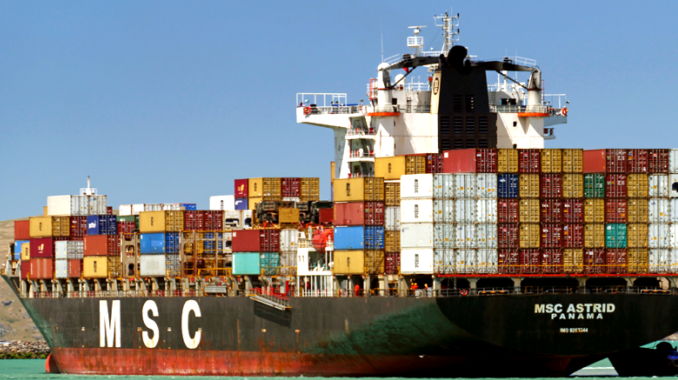
Free trade has not always been a core value of American conservatives. Our government was originally expected to raise money for its continued operation through tariffs on foreign goods. But the belief in the positive power of free markets has led to a strong embrace of free trade.
Free markets simply suggest that people and entities can interact with each other free of outside intervention and concerns. The concept is at the very core of personal liberty. It is also an oversimplification: there will always be social requirements which restrict markets in certain dangerous substances and actions. Few people want a society in which paying someone to commit murder is legal, for example.
I’ve heard Republicans claim to be the champions of free markets throughout my life, and the expectation is that the Democrats are thus somehow against them. This is untrue. Democrats tend to embrace more regulations on personal interactions, but they overwhelmingly still desire freedom and on some topics they are far less restrictive than Republicans. Using the broadest interpretation, if you want to ride a bicycle without a helmet you’re more likely to have Democrats try to stop you, but if you want to embrace someone of the same gender in public it’s more likely to be a Republican who attempts to throw a flag.
Free trade is an important subset of the free market system, even as it’s a slightly inaccurate term. No trade is truly “free”, as there are rules and stipulations placed on transactions across jurisdictions. The term is instead commonly accepted to mean trade without taxation and with as little governmental restraint as possible.
This is often fought by Democrats because of their concern for the jobs and livelihood of others. Their concerns are driven by a desire to protect their communities. If another country can create a product at a lower price – often due to having a lower standard of living and fewer protections for its workers – we risk losing our own production capacity and the associated jobs. As a moral component, restricting trade limits the incentive for foreign companies to exploit their workers.
Nationalists like Trump and his followers share the Democrats’ desire to protect our country’s jobs, and many believe that it somehow increases American revenues. For imports, taxes paid on products are added into the cost, resulting in higher prices for Americans. For exports, other countries typically reciprocate with similar tariffs, resulting in higher prices in other countries for American products… and thus, for American producers, fewer sales overseas (which in turn often reduces available jobs).
Tariffs increase money going directly to the government through trade, but can reduce the amount of trade to such a degree that the losses of indirect revenue outweigh the value of the tariffs.
Even worse, nationalists often decide they can dictate specific actions to companies within their own nation in an effort to exert direct control over trade. While this power is necessary for emergencies (such as demanding the production of testing equipment during a pandemic) it is to be fully avoided otherwise. A President or Congress does not have the intimate knowledge of a business that the owners and operators of that business possess (meaning they are likely to issue demands which hurt the business) and they are undermining the liberty of their citizens. There is no positive spin which can be placed on such actions.
I believe that the expansion of trade increases the wealth available in both participating nations, and that the lower costs of products will result in more purchasing power for the individual. This in turn will spark demand for more items in turn increasing production. New goods and services will be developed to take advantage of the opportunities. Combined with honest reporting and a receptive and attentive populace, moral failures of companies (such as engaging in slave labor) will result in loss of sales which will in turn create incentives for greater pay and better conditions for their workers. It also forges economic bonds between countries, creating risks of serious and immediate losses from armed conflict.
Free trade is not a burden, it is a temptation countries offer to each other, one which can lead to greater international wealth, greater human rights, and reduced warfare. I will continue to promote its use.
